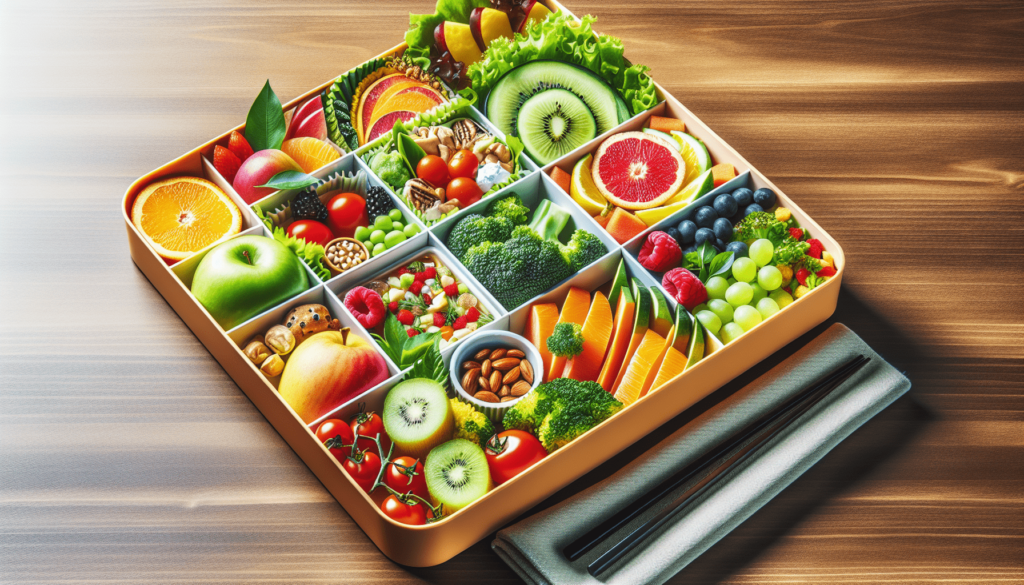Have you ever found yourself feeling overwhelmed by the demands of a high-pressure work environment? Are you struggling to maintain a healthy diet and lifestyle while juggling deadlines and stress? If so, you’re not alone. Many people face the challenge of staying healthy and nourished in the midst of hectic work schedules and tight deadlines. However, with the right eating strategies, you can fuel your body and mind for success even in the most demanding environments.

Understanding the Impact of Stress on Eating Habits
Stress can have a significant impact on our eating habits, often leading us to make unhealthy food choices or skip meals altogether. In high-pressure work environments, stress levels can be particularly high, making it even more important to pay attention to what and when you eat. Understanding how stress affects your eating habits is the first step towards developing effective eating strategies for staying healthy and energized at work.
How Stress Affects Your Eating Habits
When you’re under stress, your body releases hormones like cortisol and adrenaline, which can increase your appetite and cravings for unhealthy foods. Many people turn to comfort foods high in sugar, fat, and salt when they’re stressed, as these foods temporarily boost mood and energy levels. However, relying on these types of foods can lead to a cycle of poor eating habits and decreased overall health.
Tips for Managing Stress-Induced Eating
To combat the impact of stress on your eating habits, it’s important to find healthy ways to manage stress and reduce its effects on your body. Try incorporating stress-reducing activities into your daily routine, such as mindfulness meditation, yoga, or deep breathing exercises. These practices can help calm your mind and body, making it easier to resist the temptation of unhealthy foods when stress levels rise.
Developing Healthy Eating Habits in High-Pressure Environments
Maintaining a healthy diet in a high-pressure work environment can be challenging, but with the right strategies, it is possible to nourish your body and mind effectively. By developing healthy eating habits and incorporating nutritious foods into your daily routine, you can fuel your productivity and performance at work.
The Importance of Balanced Nutrition
Eating a balanced diet is crucial for maintaining energy levels, focus, and overall well-being in high-pressure work environments. By including a variety of nutrient-dense foods in your meals, you can provide your body with the essential vitamins, minerals, and macronutrients it needs to function optimally. Aim to incorporate a balance of whole grains, lean proteins, healthy fats, fruits, and vegetables into your daily meals to support your health and performance at work.
Tips for Planning Healthy Meals
One of the keys to eating well in a high-pressure work environment is proper meal planning. By taking the time to plan and prepare nutritious meals ahead of time, you can avoid the temptation of fast food or unhealthy snacks when you’re busy or stressed. Consider batch cooking healthy meals at the beginning of the week and storing them in individual containers for easy grab-and-go lunches and dinners. This can help you stay on track with your eating goals and save time during the workweek.
Strategies for Eating Well at Work
When you’re faced with a hectic workday full of meetings, deadlines, and tight schedules, it can be challenging to prioritize healthy eating. However, by implementing the following strategies, you can make it easier to fuel your body effectively throughout the workday.
Bring Healthy Snacks to Work
Keeping healthy snacks on hand at work is a great way to support your energy levels and curb cravings between meals. Pack nutritious snacks like fresh fruit, nuts, seeds, yogurt, or whole-grain crackers to have on hand when hunger strikes. By keeping healthy options readily available, you can avoid the temptation of vending machines or office treats and make better choices for your health.
Stay Hydrated Throughout the Day
Dehydration can impact your energy levels and cognitive function, making it essential to stay hydrated throughout the workday. Keep a reusable water bottle at your desk and make a conscious effort to drink water regularly. Aim to consume at least eight glasses of water per day to support your body’s hydration needs and promote overall health and well-being.
Take Regular Breaks to Eat Mindfully
In the midst of a busy workday, it can be easy to skip meals or eat mindlessly while multitasking. However, taking regular breaks to eat mindfully can help you stay focused, satisfied, and in tune with your body’s hunger and fullness cues. Set aside time during the workday to enjoy your meals without distractions, savoring each bite and allowing yourself to fully experience the flavors and textures of your food.
Avoid Skipping Meals
Skipping meals can lead to drops in blood sugar, decreased energy levels, and impaired concentration, making it important to prioritize regular meal times throughout the workday. Aim to eat breakfast, lunch, and dinner at consistent times each day to maintain stable energy levels and support your body’s nutritional needs. If you’re unable to take a full meal break, try to have a nutritious snack to hold you over until your next meal.
Making Healthy Choices When Eating Out
In high-pressure work environments, eating out or ordering takeout can be a common occurrence when time is limited or stress levels are high. However, it’s still possible to make healthy choices when dining out or ordering food, even in challenging circumstances. By following these strategies, you can navigate restaurant menus and make choices that support your health and well-being.
Research Menus Ahead of Time
Before heading to a restaurant or ordering takeout, take the time to research the menu in advance and look for healthy options that align with your dietary preferences and goals. Many restaurants now offer nutritional information online, making it easier to identify dishes that are lower in calories, saturated fat, and sodium. By planning ahead, you can make informed choices that support your health and well-being when eating out.
Opt for Lighter Cooking Methods
When dining out, opt for dishes that are prepared using lighter cooking methods like grilling, steaming, or baking, rather than frying or deep-frying. These cooking techniques can help reduce the overall calorie and fat content of your meal while preserving the nutritional quality of the ingredients. Look for menu items that are described as grilled, broiled, poached, or roasted for healthier dining options.
Choose Balanced Meals with Lean Proteins and Vegetables
When selecting a meal at a restaurant, aim to choose options that include a balance of lean proteins, whole grains, and vegetables to provide your body with essential nutrients and support your health goals. Look for dishes that feature lean proteins like grilled chicken, fish, or tofu, paired with a variety of colorful vegetables and whole grains like quinoa, brown rice, or whole wheat pasta. This can help you create a well-rounded meal that satisfies your hunger and supports your nutritional needs.
Practice Portion Control
Restaurant portion sizes can be much larger than what you would typically eat at home, leading to overeating and excess calorie consumption. To avoid overindulging, consider sharing a meal with a coworker, ordering an appetizer as your main course, or asking for a half portion to manage your portion sizes more effectively. By practicing portion control when dining out, you can still enjoy delicious meals while supporting your health and weight management goals.

The Role of Mindful Eating in High-Pressure Work Environments
Mindful eating is a practice that involves paying attention to your food choices, thoughts, and sensations while eating, without judgment or distraction. In high-pressure work environments, practicing mindful eating can help you develop a healthier relationship with food, improve your digestion, and enhance your overall well-being.
Benefits of Mindful Eating
By practicing mindful eating, you can become more in tune with your body’s hunger and fullness cues, making it easier to recognize when you’re truly hungry versus eating out of stress, boredom, or habit. Mindful eating can also help you appreciate the flavors and textures of your food more fully, leading to a greater sense of satisfaction and enjoyment during meals. Additionally, mindful eating can support healthy digestion, reduce overeating, and promote weight management by helping you make more conscious and intentional food choices.
Tips for Practicing Mindful Eating
To incorporate mindful eating into your daily routine, try implementing the following tips:
- Begin each meal with a moment of gratitude or reflection to set a positive tone for your eating experience.
- Eat slowly and savor each bite, paying attention to the taste, texture, and aroma of your food.
- Chew your food thoroughly and pause between bites to allow your body to register feelings of fullness.
- Minimize distractions while eating, such as scrolling on your phone, watching TV, or working at your desk, to focus on the act of eating and fully enjoy your meal.
- Check in with your hunger and fullness levels throughout the meal, stopping when you feel satisfied rather than overly full.
By practicing mindful eating techniques, you can foster a greater sense of awareness, satisfaction, and mindfulness around your food choices, leading to improved health and well-being in high-pressure work environments.
Conclusion
Navigating a high-pressure work environment can be challenging, but by implementing effective eating strategies, you can prioritize your health and well-being even in the midst of stress and deadlines. By understanding the impact of stress on eating habits, developing healthy eating routines, and practicing mindful eating, you can fuel your body and mind for success at work. Remember to prioritize balanced nutrition, plan meals ahead of time, make healthy choices when eating out, and practice mindful eating techniques to support your health goals and create a positive relationship with food in high-pressure work environments.

